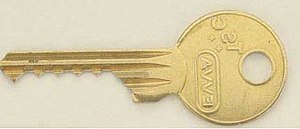By: Cliff Berman
Did you know that your house key could be bought on the Internet, letting criminals of all shapes and sizes into your home anytime they wanted? No, probably not. That s the sort of thing that happens in crime novels, not real life. But the police (and your homeowners insurance) know that all today s criminals have to do is go out on the web and not only do they have access to one of the locksmith community s best secrets, they also have handy how to guides to show them how to get into your home without letting anyone know they ve even been there.
Have you ever heard of a bump key? Lock bumping is a technique that locksmiths have been using for the better part of a century to quickly disassemble a lock and allow them to either fix it or gain access to whatever it is that the lock was locking up. Unfortunately, bump keys aren t a well kept secret anymore.
Homeowners insurance providers and security providers are doing their best to educate today s homeowners on the potential dangers of bump keys. The principle is simple. In a standard pin tumbler lock, such as the type found on the doors of most homes and apartments, the lock is made up of a series of spring loaded stacks called pin stacks. When a key is slipped into the lock the pins line up along the edge, allowing the cylinder to turn and the door to open.
A bump key is a standard key that has been filed down. Criminals simply slip the bump key into the lock one notch short of full insertion, then bump the key with a hammer or other hard object. The impact causes the pins to jump, creating a small window in which the lock can be turned without damaging it. Even a criminal with little experience (and even less common sense) can enter your home without leaving any signs of breaking and entering behind.
There are things that you as a homeowner can do to protect your home against criminals using bump keys. First, recognize that well made pin tumbler locks are more vulnerable to lock bumping because the pins are designed to move smoothly, allowing the lock to open easily when a cheaper lock would jam. Electronic locks, magnetic locks and locks that use rotating discs aren t vulnerable to lock bumping, and because the bump key has to have the same blank profile as the lock it s made to open in order to work restricted or registered key profiles are safer. (As opposed to the keys you can go to WalMart and purchase for less than a dollar.)
The danger to homeowners comes in the ready availability of bump keys to today s criminals. Bump keys for many different types of locks are sold on the web for anywhere from $1 to $200, depending on the type of lock it s intended to open. There are a number of videos on YouTube that readily show criminals how to use this simple lock picking device, and even the recent features done on the process by today s news channels have opened the door to more information than the average criminal needs to get into your home.
Talk to your security company today about protecting yourself from the danger of bump keys. Everyone in your house will sleep better when you do.
Author Resource:-> Clifford F. Berman is the CEO of http://QuoteScout.com. For more information on how homeowners insurance can protect your home from theft, visit them on the web at http://www.QuoteScout.com.
Related articles Unlocking the truth behind bump keys





